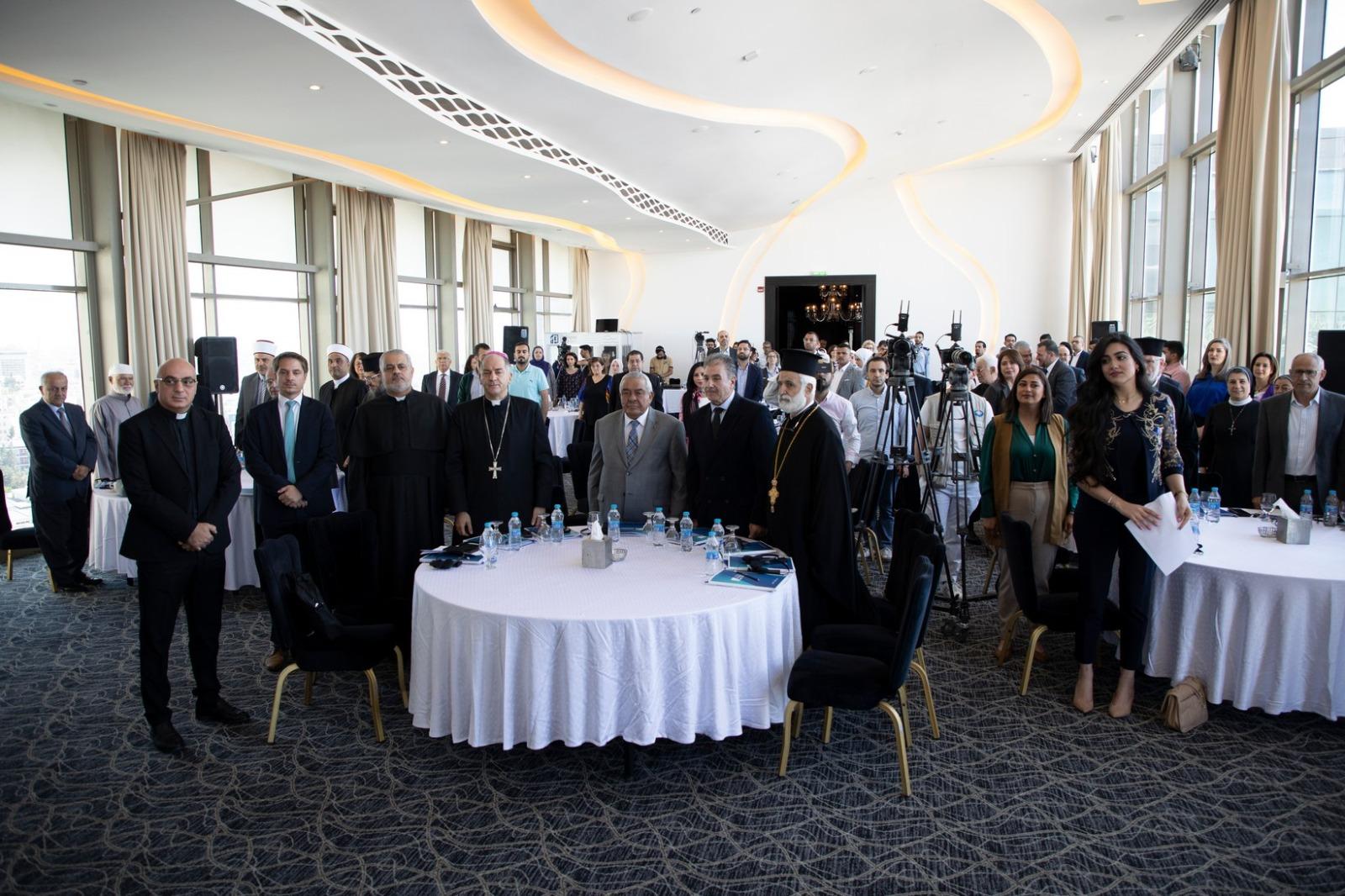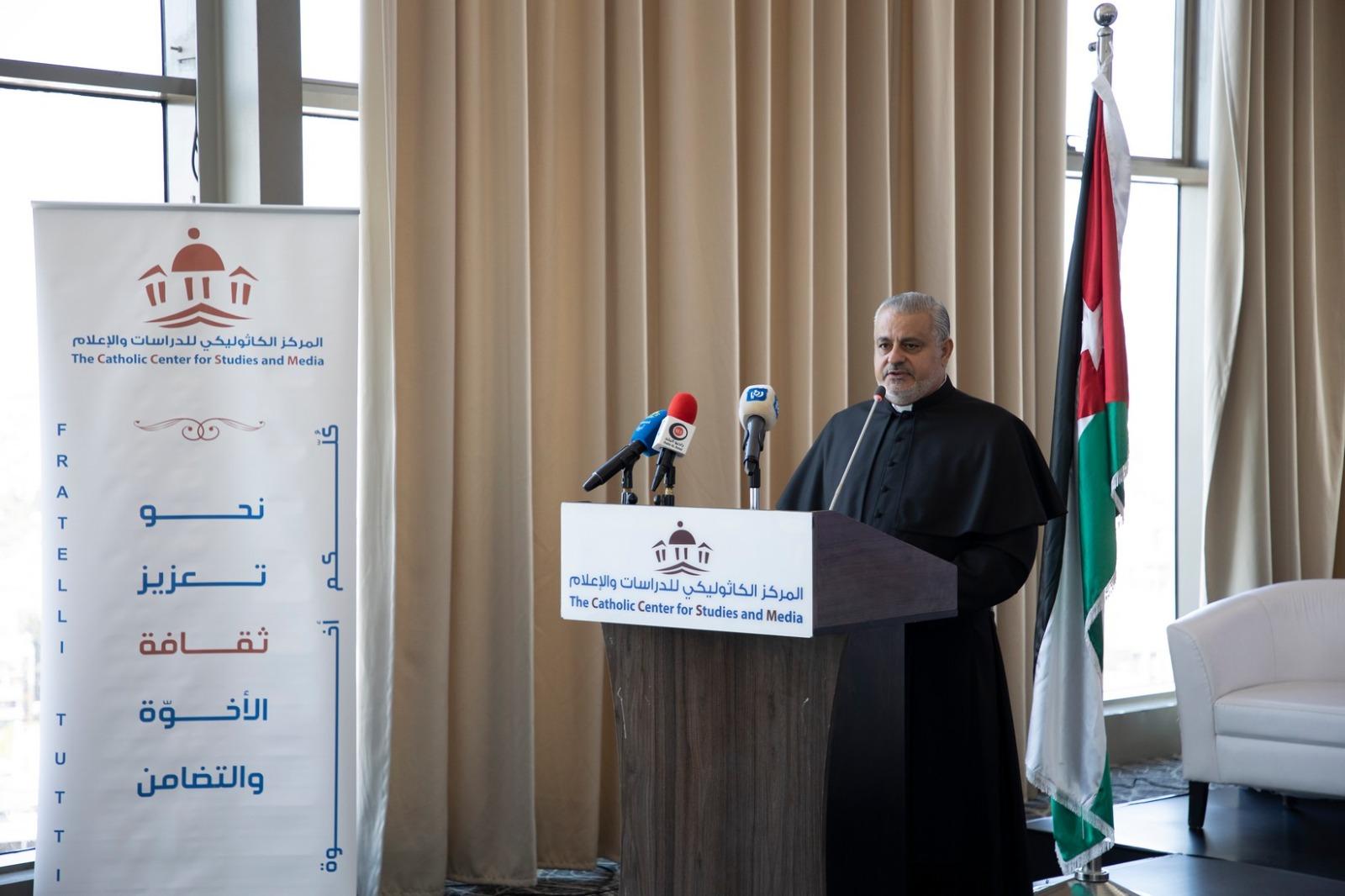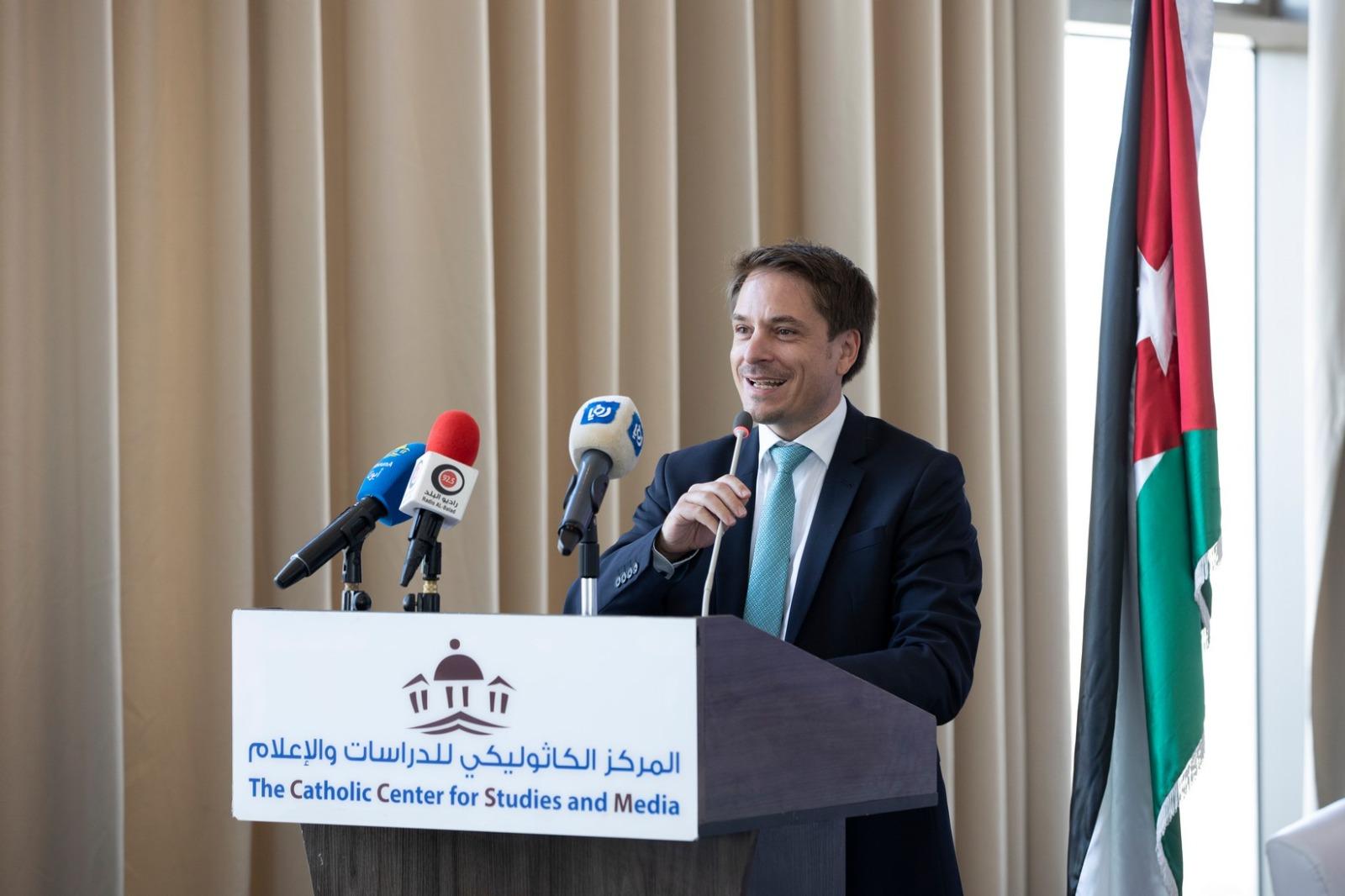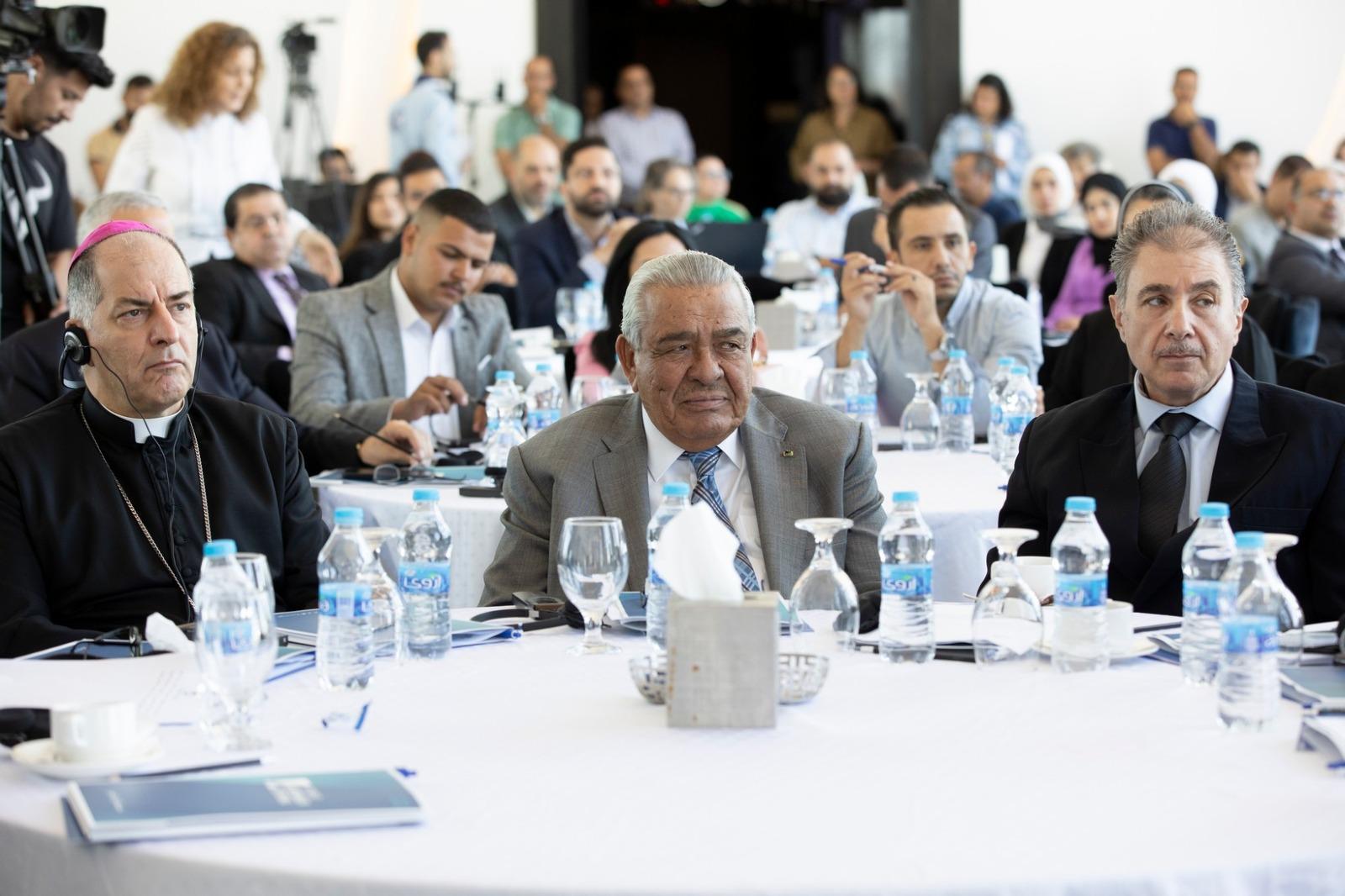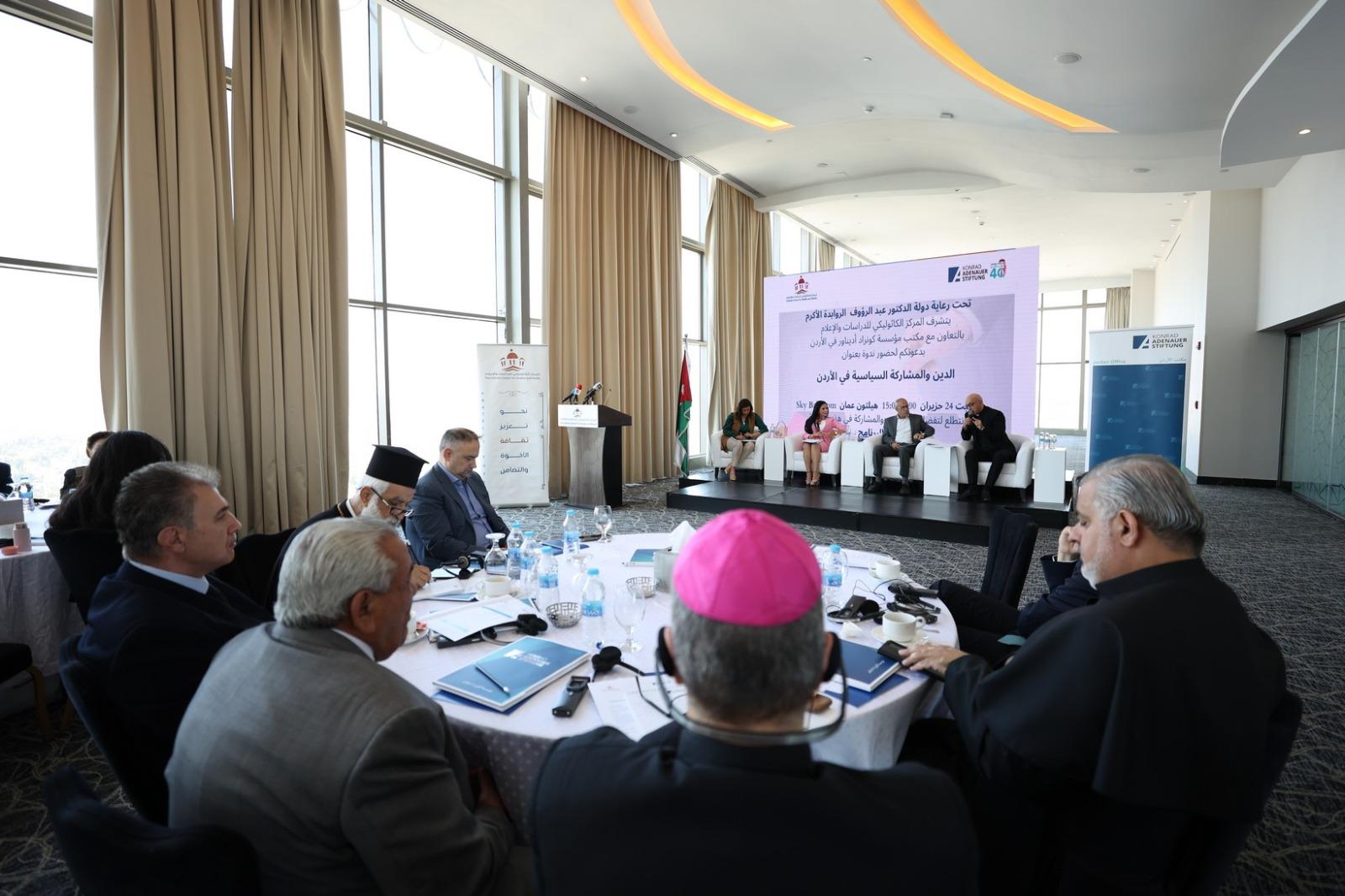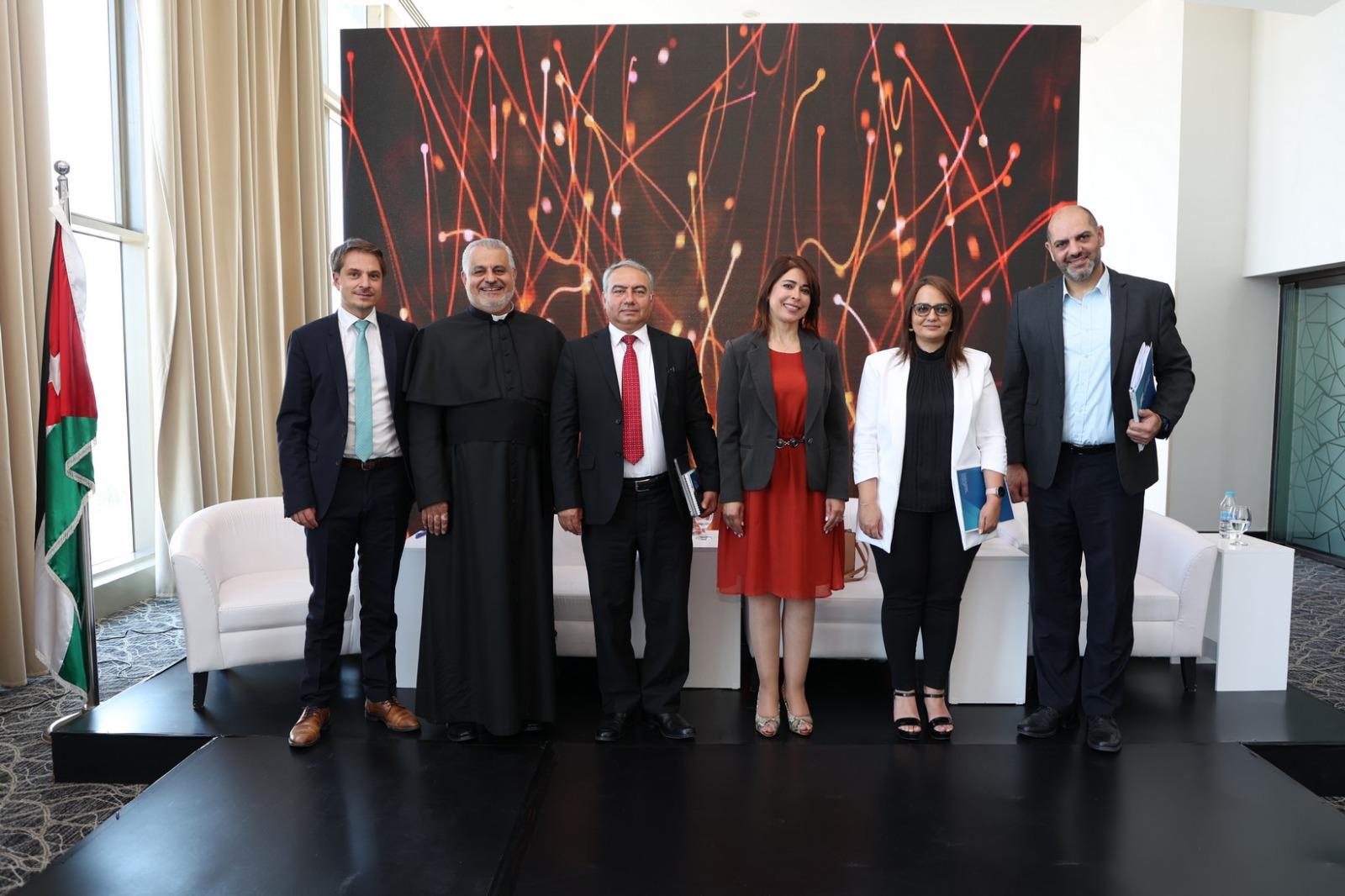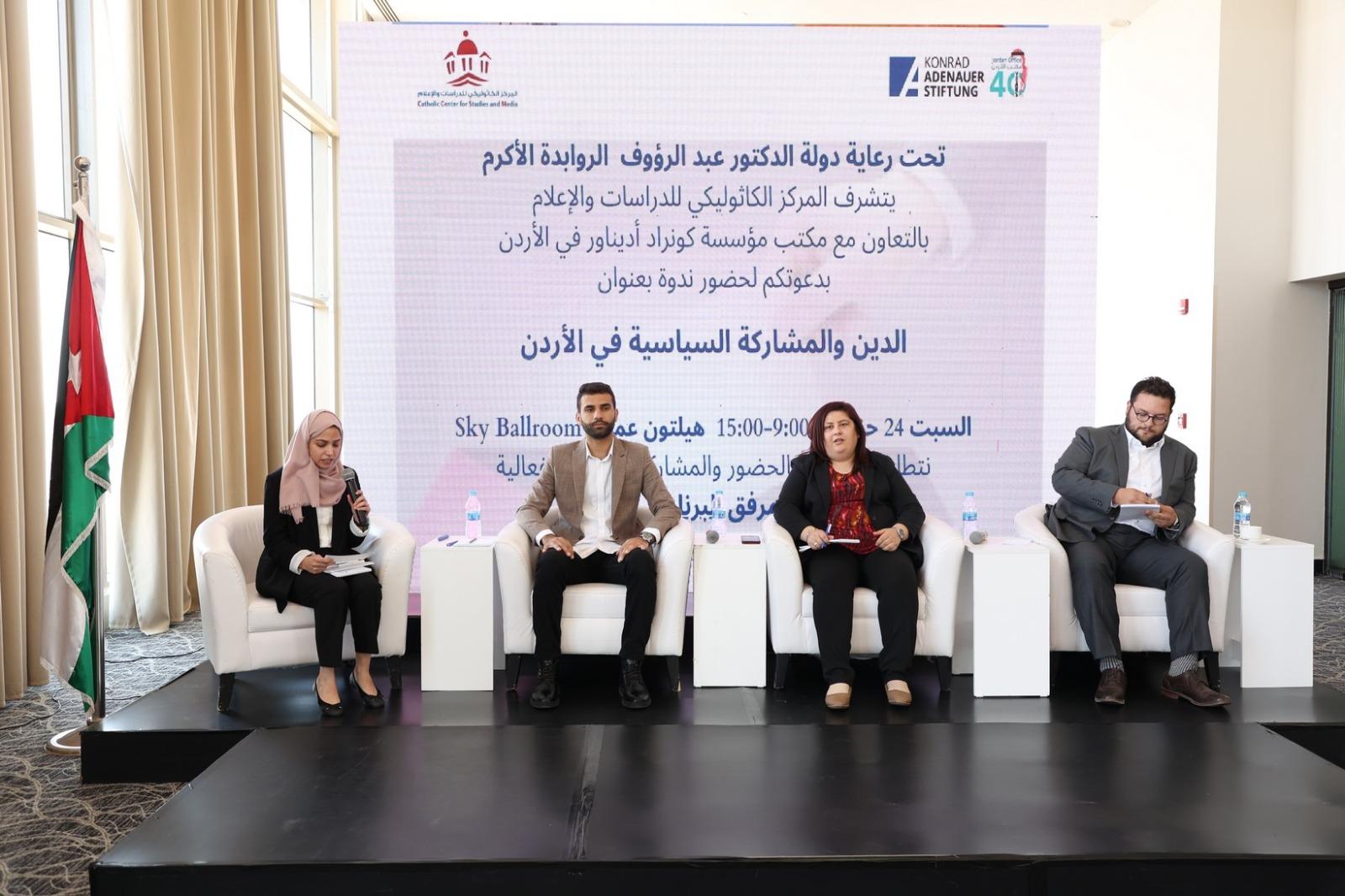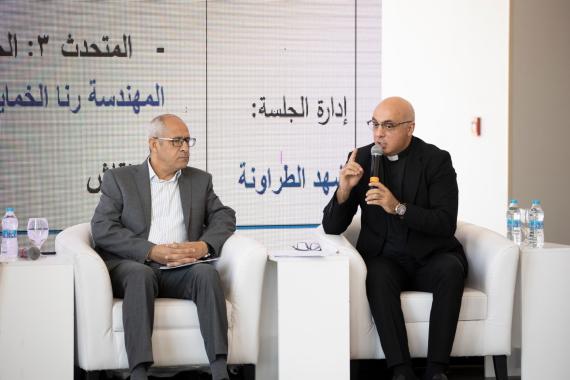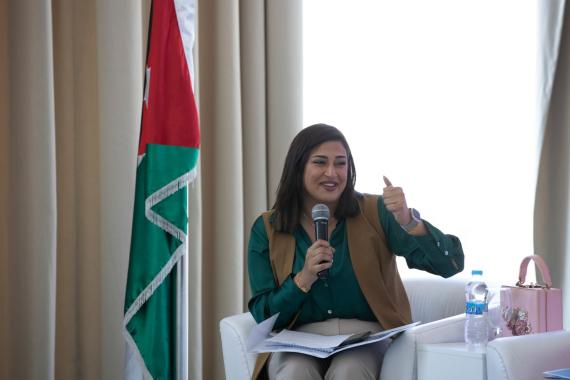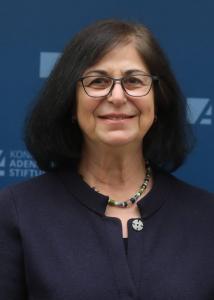The conference primarily addressed the role of religion within political participation processes in Jordan in light of the new adopted political reform. Last year, His Majesty King Abdullah II adopted a political reform where citizens were invited to participate within the reform process for a stronger, and more democratic Jordan. The question "Does religion serve as a supporting or weakening factor for political participation in Jordan?" developed into the core of this discussion. Some participants argued that believers and followers from Islam and Christianity are called upon not to stand on the sidelines of society, but rather to participate politically and express their opinions.
CCSM Director, Fr. Dr. Rifa't Bader, welcomed the participants in his opening speech and highlighted that CCSM has been calling for equality of rights, duties and good citizenship since its establishment in 2012 under the auspices of the Latin Patriarchate and in collaboration with various churches, religions and broader segments of Jordanian society. According to Father Dr. Bader, every citizen should not be considered as a spectator, but should be in the center of social life and should be involved within the different social, cultural, religious and political spheres of life.
Dr. Edmund Ratka, Director of the Konrad Adenauer Foundation in Jordan commented in his opening speech on the increase of the worldwide steady absence of trust in political systems and mentioned as an example the rising populism in Europe. An increase in the political participation of civil society can serve as a solution and lead to long-term stability: "We at the Konrad Adenauer Foundation strongly believe that broader political participation will lead to better governance through increased accountability and representation. And this will be able to promote long-term stability." He added that in his view, Christianity and Islam encourage people to work for a better world. Religious communities, in this case, could encourage followers and believers to join civic participation or stand up as political leaders.
The event included three different panels. The first panel dealt with the topic "Religion and Political Participation in Jordan". Moderator Shahed Al Tarawneh, journalist from the Jordanian channel Al Mamlaka TV, led the discussion. Academic Advisor of Al Albayt University, Dr. Amer Al Hafi, expressed his views on "Political Participation from a Muslim Perspective".
In contrast, Father Dr. Imad Alamat, General Secretary of the Latin Vicariate in Amman, spoke on "Political Participation from a Christian Perspective" and then Father Fr. Ibrahim Dabbour, General Secretary of the Council of Churches in Jordan, expressed his views on "The Position of the Church in Jordan". In his contribution, Fr. Ibrahim Dabbour emphasized that the Church's teaching encourages political participation and aims to serve the people and enhance their dignity. Following the panel, journalist, Dr. Rana Khamayseh, spoke on "The Need to Participate in Political Life in Jordan."
The second panel addressed the topic of "Making Political Life More Inclusive." Omar Abawi, Program Manager at Caritas Jordan, moderated this discussion. Dean of Student Affairs at the German Jordanian University, Dr. Thelal Oweis, spoke on the topic of "The Role of Youth in Political Life." Professor of Journalism at Yarmouk University, Dr. Marcelle Jweinat, addressed the issue of the role of women in political life in Jordan. Afterwards, Dr. Fares Braizat, Chairman of NAMA, and former Minister of Youth of Jordan, expressed his views on how to make political parties more attractive.
The final panel, "How to encourage young people to participate in political life?" was moderated by Asma Al Shelleh, Senior Program Officer at Al Thoria Studies Center. Panelists included Hassan Al Wer, an engineer with an interest in Jordanian politics; Lina Haddad, an expert on youth and women's empowerment programs; and Mohammad Assaf, a researcher and author.
The conference ended with a closing speech by Dr. Edmund Ratka and Father Dr. Bader. He concluded by adding that the state must create trust between young people and the political system in order to make political participation possible at all: "People, youth and others must regain trust in the system. But the system must also trust the people and the youth."
Afterwards, politician Jamil Al Nimiri presented a summary of the discussion sessions and called on youth to engage more positively and effectively in political processes, but also added that the state must encourage youth participation. We would like to express our sincere gratitude to all participants and special thanks to our cooperation partner Catholic Center for Studies and Media (CCSM) and our speakers who made this event possible!



